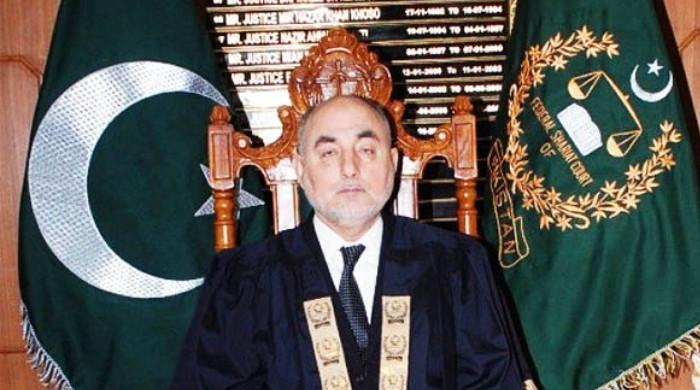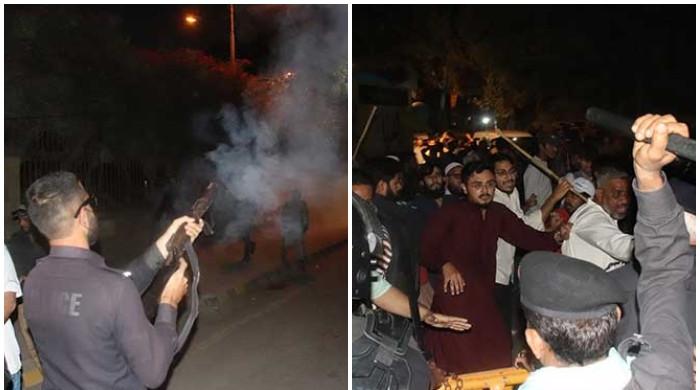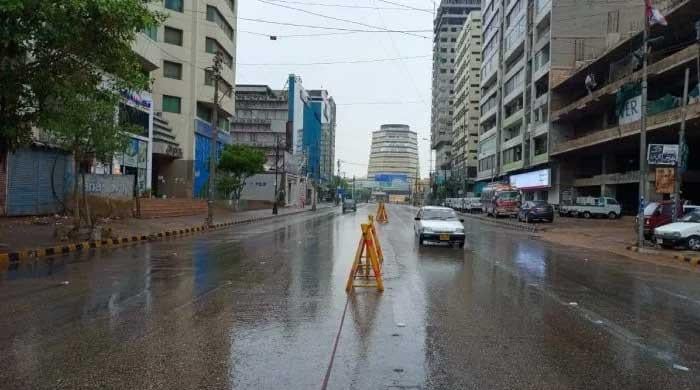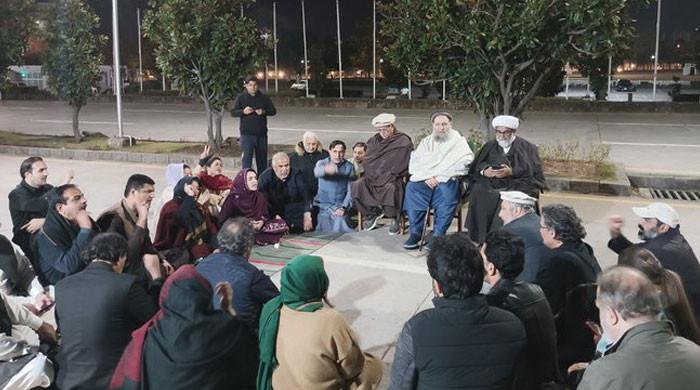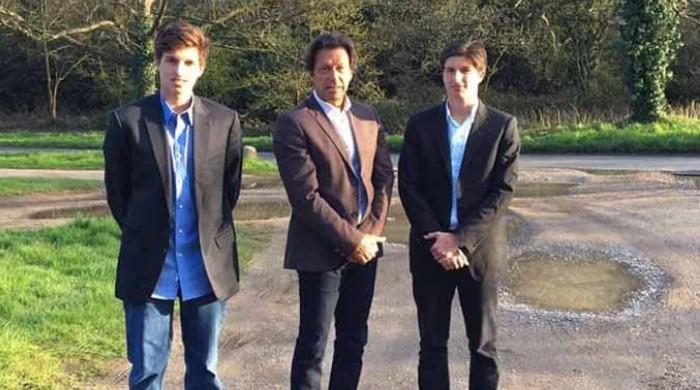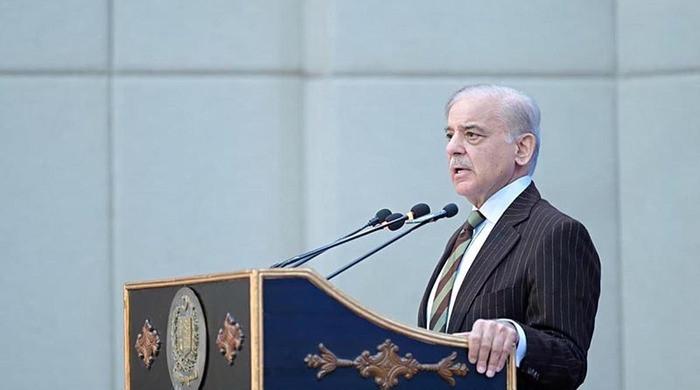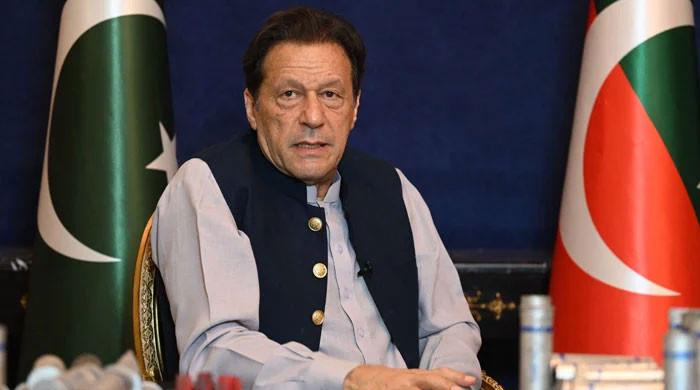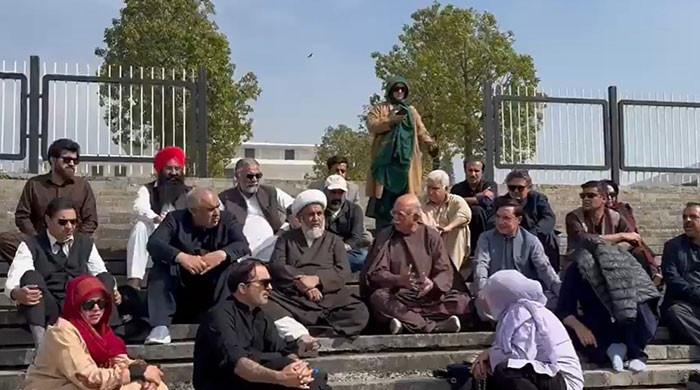‘Bajwa Doctrine’ working well against US threats: British think tank
UK defence think tank says US has made a mistake by confusing General Bajwa with Pervez Musharraf who had buckled under US pressure
February 16, 2018
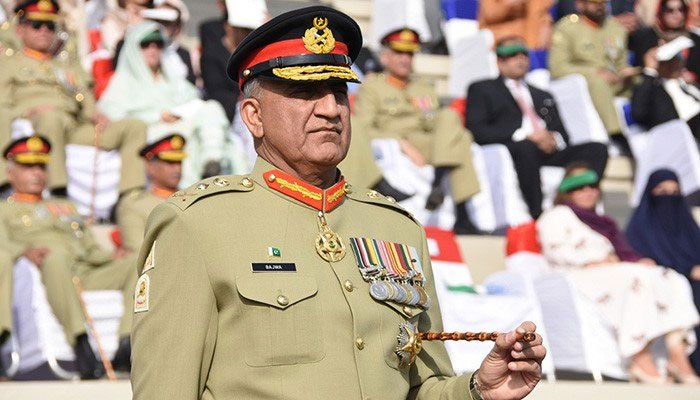
LONDON: Leading British security think-tank Royal United Services Institute (RUSI) has said in an analysis that Pakistan army under the “Bajwa doctrine” is biting back hard against threats issued by the American administration.
In a report published on Thursday, RUSI said Pakistan appears far more confident than it was when the US threatened the then-president, General (retd) Pervez Musharraf, to bomb Pakistan "into the stone-age" if it didn’t comply with American demands.
The RUSI report said the United States has been making the same threats that it did from the George W Bush till now, but “gone are the days of timidity and scurrying to please the Americans”. The think tank this was being called the “Bajwa Doctrine” which suggests that the Pakistan Army should not 'do more', but rather the world must do more.
It said that Pakistan army is now “battle-hardened after 17 years of war on its western frontier and regular skirmishes on its eastern border” and the world, in the shape of China, Russia, Turkey and Iran, have all come to Pakistan’s defence as America loses influence in Islamabad. “Pakistan is now adamant that the time for American threats and directives is over.”
Written by Kamal Alam, RUSI’s expert on Pakistan and the Middle East, the report said that Milt Bearden, a former station chief in Islamabad who along with Congressman Charlie Wilson ran the covert war from Pakistan to fight the Soviets in the 1980s, and former Secretary of State Hillary Clinton, have said that it is wrong to blame Pakistan alone for the problems in Afghanistan and while in Donald Trump’s administration there is no tolerance for Pakistan, General Bajwa has clearly stated even before Trump’s tweet that the time for Pakistan to do more has come to an end.
The report noted that the US administration has made a mistake by confusing General Bajwa with Pervez Musharraf who buckled under pressure and responded to all of the American requests and threats. The report quoted several former officers, who were in service at the time of ‘war on terror’, as saying that Pakistan delivered everything it promised on Afghanistan but the US president’s policy tweet on Pakistan and the follow-up by the US government appeared to be a departure from reality.
It said that the Turkish president, and Chinese and Japanese foreign ministers had all made their support for Pakistan’s counter-terrorism effort well known.
“The Pakistani military is fully prepared to face any cuts in US military aid and potential threats of cross border incursions by American forces and feels its global recognition and reputation of its counter terror efforts and the military’s role is very different to what it was in 2001," reads the RUSI report.
"The Pakistani military has made it clear that it will do no more than it has already done. According to the COAS, Pakistan must defend its borders and has already played its hand in regional peace. As 2018 begins, it is the Americans that need Pakistan and not the other way around. US Secretary of Defence Jim Mattis has already said that he is in touch with the Pakistani military, as without them the US forces cannot move their equipment or survive in landlocked Afghanistan. If anything, Trump’s tweet has made Pakistan realise it has been wrong to trust America for seven decades. The Pakistanis have given full combat and logistical support to a war for which America has no answers."
The report said that while there has been a downward trajectory of US aid to Pakistan, the Trump factor coupled with the threat of aid cuts seems to be a flash in the pan.
“The message from the military is quite clear—US equipment is no longer the only option for Pakistan. In fact, Pakistan is actively buying hardware and producing more with China. As far as US military aid goes, the words of the Pakistani Army’s spokesperson Major-General Asif Ghafoor sums up Pakistan’s perspective, ‘Pakistan never fought for money but for peace’. The Pakistani military leadership’s message is clear, that the Army has restored Pakistan’s stability. Afghanistan’s stability is the responsibility of the Afghan government and US forces. In fact, the US still completely relies on Pakistani assistance for logistics and complete usage of airspace for its forces."
The report quoted leading American generals and officers who said that without Pakistan the war on terror would not have been won after 9/11.
"It was Pakistan that helped militarily more than any other NATO country. The future, as far as the Pakistan Army is concerned, belongs to them,” concluded the report.




